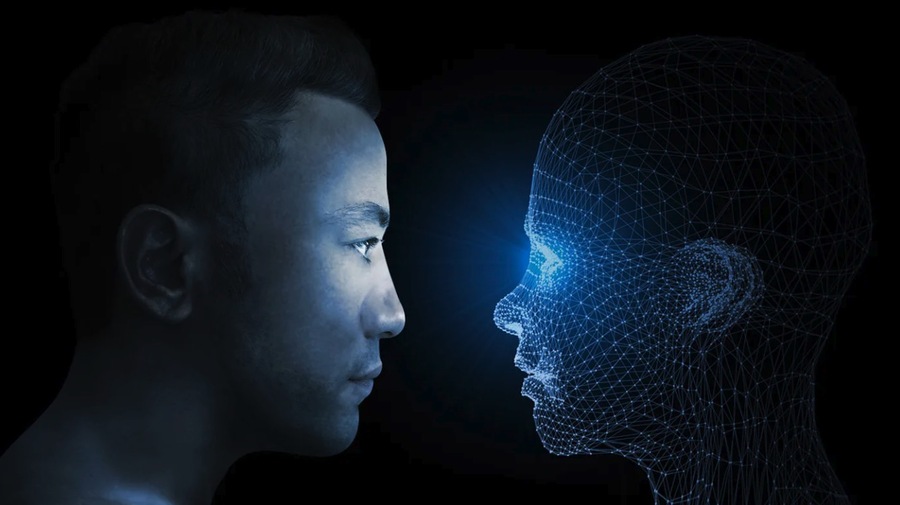Artificial Intelligence (AI) has completely changed several industries, like healthcare and banking, and will profoundly affect education. As we enter a time when technology permeates every aspect of our lives, artificial Intelligence (AI) is changing the face of education and providing fresh approaches to enduring problems. With an emphasis on its use in Ajman private schools and beyond, we examine how artificial intelligence (AI) changes classrooms, customizes learning experiences, and helps instructors with administrative duties in this blog.
Transforming Classrooms
Smart Classrooms
Conventional classrooms are evolving into dynamic, interactive learning environments thanks to AI-powered tools and gadgets. Smart boards and AI-powered instructional tools are becoming commonplace in Ajman’s elite schools, increasing student engagement. Examples of AI-powered learning systems that offer personalized learning experiences are Classcraft and Knewton, which adjust to each student’s unique learning style and speed. These resources improve comprehension and retention in addition to making classes more interesting.
For instance, smart boards replace conventional whiteboards because they are interactive displays that may incorporate multimedia information, provide users rapid access to web resources, and facilitate group projects. These boards frequently have AI-powered capabilities that can identify and react to movements, enhancing the interactivity and engagement of the learning process. Furthermore, real-time performance analysis of students by AI-powered educational software allows for prompt feedback and tailored suggestions for enhancement.
Automated Grading Systems
Grading homework assignments and exams is one of instructors’ biggest responsibilities. This procedure may be automated by AI, resulting in rapid and precise assessments. According to recent EdTech Review research, automated grading systems can save grading time by up to 40%, freeing up more time for teachers to focus on student growth and individualized instruction. Because they provide dependable automated grading solutions, tools like Turnitin and Gradescope are already causing waves in educational institutions.
These systems use machine learning algorithms to assess written answers, multiple-choice questions, and even challenging problem-solving tasks. Artificial Intelligence can offer comprehensive feedback by identifying areas where pupils require development by examining trends in their replies. This helps students receive fast feedback to rectify their problems and learn more efficiently. It also saves teachers time.
AI Tutors and Learning Assistants
AI-powered tutoring programs are giving kids extra help outside of the classroom. Virtual teaching assistants, like IBM Watson Tutor, are always available to answer students’ questions, clarify their answers, and provide resources. This ongoing accessibility guarantees that students may receive assistance anytime they require it, creating a more favorable learning environment.
These artificial intelligence (AI) instructors mimic a discussion with a human tutor by understanding and responding to student inquiries using natural language processing (NLP). To help pupils retain what they have learned, they can offer clarifications, recommend more reading, and even give them quizzes. Some sophisticated AI tutors can also modify their teaching methods in response to the student’s development to customize each lesson to their needs.

Personalizing Learning Experiences
Adaptive Learning Platforms
Adaptive learning systems use AI algorithms to customize course materials to meet the needs of specific students. These systems generate a personalized learning route by assessing a student’s preferences, learning pace, and knowledge level. A McKinsey & Company analysis claims that 15–30% better student results might be achieved through adaptive learning. Private schools in Ajman use DreamBox and Smart Sparrow, among other platforms, to provide customized learning experiences that let students advance at their speed.
Using constant performance monitoring, adaptive learning systems modify the level of challenge and the speed of education to suit the needs of each learner better. This individualized approach ensures that pupils are kept intellectually stimulated but not overburdened. By identifying knowledge gaps and providing focused interventions, these platforms assist students in developing a solid foundation in every topic.
Data-Driven Insights
The capacity of AI to evaluate enormous volumes of data can yield priceless insights into student performance. AI can pinpoint areas where students struggle and provide focused treatments by seeing patterns and trends. According to recent research from the International Society for Technology in Education (ISTE), student performance increased by 20% in schools that used data-driven insights. By giving educators access to these insights, tools like Tableau and Power BI enable them to make better decisions.
These technologies may analyze numerous data sources, including evaluations, attendance logs, and classroom interactions. Artificial Intelligence can assist teachers in comprehending the elements that affect students’ performance by finding patterns in this data. AI may, for instance, show that a particular set of students respond better to a specific teaching strategy or that a student’s attendance habits are related to their academic achievement. Equipped with this data, educators may enhance their pedagogical approaches and facilitate students’ learning through data-driven decision-making.
Gamification and Engagement
AI has gamified education, increasing students’ enjoyment and engagement with the material. AI-powered learning games can adjust their difficulties so they’re simple and easy for the player based on their ability level. As a result, students remain engaged and ready to study. Private schools in Ajman use famous platforms like Kahoot! and Quizlet because they provide engaging, enjoyable, and interactive learning opportunities for their pupils.
Gamification uses game design concepts to enhance the interactivity and fun of learning. Using features like leaderboards, badges, and points, instructional games motivate students to actively engage and work towards advancement. Artificial Intelligence (AI) is essential to tailor these experiences and ensure that every learner faces difficulties appropriate to their ability level. Better learning results are achieved by maintaining students’ desire and interest in the material.
Assisting Teachers in Administrative Tasks
Automating Routine Tasks
AI may automate regular administrative duties like scheduling, grading, and attendance management. Teachers may spend more time teaching and connecting with pupils because of this automation, which frees up their time. Roll call times can be decreased, for instance, by employing AI-based attendance systems that use face recognition technology to swiftly and reliably record student attendance.
These devices automatically recognize pupils and log their presence using sophisticated image recognition algorithms. This guarantees correct attendance records, minimizes mistakes, and saves time. AI may also assist with scheduling by ensuring resources are used effectively and optimizing timelines. AI increases school efficiency by allowing instructors to concentrate on their primary duties by automating these repetitive jobs.
Resource Management
Any school must handle its instructional resources effectively. AI systems may assist in managing resources such as digital content, school supplies, and library books. AI-driven content curation systems can recommend resources according to the curriculum and the specific needs of each learner. This guarantees that the greatest resources are available to educators and learners alike. Tools such as Content Technologies Inc.’s LibGuides and their optimized resource management solutions are leading the way.
AI may monitor demand and consumption trends for various resources to ensure they are available when needed. For instance, an AI-powered library management system can keep track of the most popular books and ensure they’re always available. Similarly, AI may assist with digital resource management by recommending curriculum—and student-based material. By doing this, teachers are guaranteed access to the best materials available, improving the quality of instruction.

Professional Development
AI-powered systems provide instructors with individualized chances for professional growth. These platforms evaluate instructional strategies, offer criticism, and recommend areas for development. A Gates Foundation research found that schools that used AI to drive professional development showed a 25% boost in teacher effectiveness and satisfaction. Teachers use platforms like Coursera and Udacity for skill development and ongoing learning.
These platforms employ AI to pinpoint areas where educators might enhance their instruction and suggest pertinent courses and materials. Artificial Intelligence (AI) may offer tailored feedback and recommend specific treatments by evaluating data on teaching strategies and student outcomes. This aids in skill development and keeps teachers abreast of recent educational developments. Furthermore, AI-powered professional development systems may provide personalized learning pathways, guaranteeing that every educator gets the necessary instruction.
Private schools in Ajman have led the way in using AI in their teaching methods. AI-driven tools and platforms have been implemented by schools such as City American School to improve the educational experience of their pupils. These educational institutions have improved teaching and learning results using AI to automate repetitive chores, provide individualized learning routes, and offer data-driven insights.
The application of AI-driven adaptive learning systems is one such illustration. By adjusting education to each student’s specific requirements, these platforms have assisted students in private schools in Ajman in achieving higher academic results. These platforms ensure students stay interested and motivated by constantly assessing their performance and changing their level of work.
Another important AI application is using automated grading systems in Ajman private schools. Teachers now have less work to do, which frees them to concentrate more on developing their students and providing individualized teaching. Artificial Intelligence has raised student support and feedback standards by delivering assessments quickly and accurately.
Additionally, thanks to AI-driven professional development platforms, teachers at Ajman’s private schools have improved their abilities and are keeping up with the most recent teaching methods. These platforms, which provide tailored learning routes and focused interventions, have increased teachers’ professional development and happiness.
Challenges and Considerations
Even though AI has many educational advantages, some issues and concerns must be considered. Data security and privacy are two main issues. AI systems collect and analyze large volumes of data. Thus, ensuring that this data is secure and handled morally is critical. Schools must comply with all applicable rules and enforce strong data protection procedures.
The digital divide is an additional problem. Even though AI can improve learning results, it is crucial to guarantee that all students have access to these tools. Schools need to help close the digital gap by giving kids from all backgrounds the necessary tools and assistance.
Furthermore, educators require assistance and continual professional growth. Even though AI may provide insightful analysis and helpful suggestions, it is crucial to ensure that educators have the abilities and know-how to incorporate these technologies successfully into their lesson plans. Schools need to make investments in teachers’ ongoing professional development and support.
Future Outlook
With more big benefits to come from ongoing technological developments, the future of AI in education seems bright. As AI algorithms advance, we may anticipate more personalization and flexibility in learning experiences. AI-driven tools will keep developing, bringing more sophisticated features and functionalities to improve learning and teaching.
To solve the issues and guarantee the moral use of AI in education, we may also anticipate further cooperation between engineers, educators, and legislators in the upcoming years. Stakeholders can maximize AI’s advantages while mitigating hazards by cooperating to build a supportive environment.
In addition, we anticipate a move in schools towards more data-driven decision-making as AI is incorporated into teaching methods. Thanks to increased access to comprehensive insights and analytics, teachers can make better judgments and modify their pedagogical approaches to suit their pupils’ requirements better.
Conclusion
Without question, AI is revolutionizing the education industry by improving learning efficiency, personalization, and engagement. Like many other private schools worldwide, Ajman’s uses modern technology to enhance their educational programs. The use of AI in education, learning experience personalization, and administrative work support are only the beginning. AI’s influence on education will only increase as technology develops, offering educators and students a more optimistic future.
Educators and institutions must keep investigating and using AI technology to stay ahead of the curve in this quickly evolving field. By doing this, they can guarantee that each student receives the greatest education possible, catering to their individual requirements and learning preferences. AI is driving the educational landscape of the future. As we advance, it will be crucial to resolve the issues and guarantee that every student may benefit from artificial Intelligence (AI), building a more just and efficient educational system for all.

Skydiver, vegan, audiophile, Saul Bass fan and screen printer. Producing at the sweet spot between simplicity and computer science to create not just a logo, but a feeling. Let’s chat.
